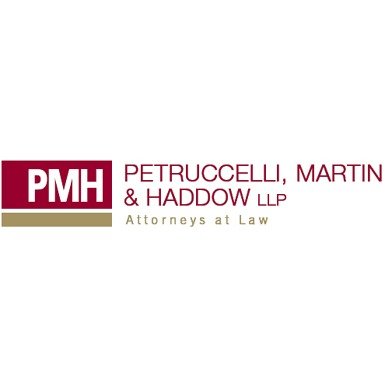Best Project Finance Lawyers in Portland
Share your needs with us, get contacted by law firms.
Free. Takes 2 min.
List of the best lawyers in Portland, United States
About Project Finance Law in Portland, United States
Project finance is a specialized area of law that deals with the financial structuring and legal framework of large infrastructure and development projects. In Portland, United States, project finance often applies to energy developments, public infrastructure ventures, transportation projects, and large-scale real estate developments. The main feature of project finance is that the funding for the project is secured primarily against the future cash flows generated by the project itself, rather than the assets or creditworthiness of the project sponsors. Project finance structures in Portland typically involve a combination of equity investments, commercial loans, government incentives, and special purpose entities set up to own and operate the project assets.
Why You May Need a Lawyer
Legal assistance is crucial in the project finance process for several reasons. Here are some common situations where involving an experienced project finance lawyer in Portland can make a significant difference:
- Negotiating and drafting complex financing agreements.
- Understanding and complying with state and local regulations on zoning, environmental impact, and licensing.
- Structuring special purpose vehicles and partnership agreements.
- Conducting due diligence for financing parties, investors, or public entities.
- Managing risks related to construction, operations, and revenue generation.
- Negotiating terms with lenders, equity investors, and government agencies.
- Resolving disputes among stakeholders or with governmental bodies.
- Ensuring compliance with tax and accounting rules unique to project finance transactions.
Having a lawyer by your side helps ensure the complex legal, regulatory, and financial aspects of your project are addressed efficiently and accurately, minimizing costly mistakes and delays.
Local Laws Overview
Project finance transactions in Portland are shaped by a combination of federal, state, and municipal laws. Here are key aspects of the local legal landscape:
- Zoning and Land Use: Portland has specific zoning and land use regulations governing what types of developments can occur in certain city areas. Projects must adhere to local land use planning, environmental assessments, and, in some cases, city council approvals.
- Environmental Compliance: Projects may trigger reviews under Oregon’s environmental policy laws and may need permits from the Oregon Department of Environmental Quality and the City of Portland’s Bureau of Environmental Services.
- Public-Private Partnerships: Portland has a history of fostering public-private partnerships, especially for transportation and renewable energy infrastructure. These ventures must follow procurement rules and transparency requirements set by city and state law.
- Tax Incentives: The State of Oregon and the City of Portland may offer tax credits or incentives for certain types of projects, such as renewable energy installations or affordable housing. Legal counsel ensures eligibility and compliance.
- Permitting: Large-scale projects require multiple permits from both city and state agencies, including building permits, utility connections, and environmental permits.
Navigating these frameworks requires both local knowledge and experience in complex financial structuring to ensure that a project can move from conception to completion smoothly.
Frequently Asked Questions
What is project finance and how does it differ from traditional corporate finance?
Project finance secures repayment primarily from the cash flow generated by the project rather than the overall assets or credit of the project sponsors. It often involves using a special purpose vehicle to isolate the project’s liabilities.
What types of projects in Portland commonly use project finance structures?
Common projects include renewable energy installations, public transportation infrastructure, waste management plants, and large-scale commercial and residential developments.
What legal risks are most common in a project finance transaction in Portland?
Legal risks can involve zoning issues, environmental compliance, construction delays, contract disputes, financing defaults, and regulatory changes.
Are there specific environmental regulations impacting project finance in Portland?
Yes, all projects must comply with local and state environmental rules. This can include environmental impact studies, permits for stormwater management, and adherence to regulations on emissions or waste.
What government incentives might apply to my project?
Depending on your project type, you may be eligible for state or local tax credits, grants, or other funding incentives, especially for projects involving renewable energy, affordable housing, or infrastructure improvements.
Can a lawyer help with public-private partnership (PPP) projects in Portland?
Absolutely. Lawyers can help structure PPPs, navigate complex procurement processes, safeguard transparency requirements, and negotiate the terms between public and private participants.
Do I need legal representation when dealing with lenders and investors?
Yes, it is critical to have legal representation to negotiate terms, ensure compliance with laws, review due diligence materials, and draft binding agreements that protect your interests.
What is a special purpose vehicle (SPV) and why is it used?
An SPV is a separate legal entity created for the sole purpose of managing a specific project. It isolates the financial risk of the project from the sponsors and helps structure financing arrangements.
How long does the project finance process take in Portland?
The timeline varies based on project complexity, permitting requirements, and funding sources. Generally, it can take several months to years from initial planning to financial close.
What should I do if a legal dispute arises during my project?
Contact a project finance lawyer immediately. Legal counsel can advise on dispute resolution mechanisms, mediation, or litigation options to protect your project and financial interests.
Additional Resources
If you need more information or guidance about project finance in Portland, these resources can be valuable:
- Oregon Department of Environmental Quality: For information and permitting related to environmental compliance.
- City of Portland Bureau of Development Services: For zoning, building permits, and land use guidance.
- Oregon Infrastructure Finance Authority: For state-backed loan programs and infrastructure project resources.
- Portland Business Alliance: For networking, advocacy, and support for large-scale business projects in the city.
- American Bar Association - Project Finance Committee: For educational resources and finding qualified legal professionals.
Next Steps
If you are considering a project finance transaction or need legal help in Portland, here are the steps you should take:
- Identify the scope and objectives of your project, including potential funding needs and timelines.
- Gather preliminary details about the site, regulatory requirements, and expected stakeholders.
- Consult with an experienced project finance lawyer in Portland to assess potential legal obstacles, compliance requirements, and optimal financial structures.
- Prepare the necessary documentation and engage in negotiations with lenders, investors, and government entities, with your lawyer’s guidance.
- Continuously review compliance and risk management strategies to ensure your project remains on track and legally protected.
Reaching out to a qualified legal professional early in the process can help you anticipate challenges, leverage opportunities, and maximize the success of your project in Portland.
Lawzana helps you find the best lawyers and law firms in Portland through a curated and pre-screened list of qualified legal professionals. Our platform offers rankings and detailed profiles of attorneys and law firms, allowing you to compare based on practice areas, including Project Finance, experience, and client feedback.
Each profile includes a description of the firm's areas of practice, client reviews, team members and partners, year of establishment, spoken languages, office locations, contact information, social media presence, and any published articles or resources. Most firms on our platform speak English and are experienced in both local and international legal matters.
Get a quote from top-rated law firms in Portland, United States — quickly, securely, and without unnecessary hassle.
Disclaimer:
The information provided on this page is for general informational purposes only and does not constitute legal advice. While we strive to ensure the accuracy and relevance of the content, legal information may change over time, and interpretations of the law can vary. You should always consult with a qualified legal professional for advice specific to your situation.
We disclaim all liability for actions taken or not taken based on the content of this page. If you believe any information is incorrect or outdated, please contact us, and we will review and update it where appropriate.












